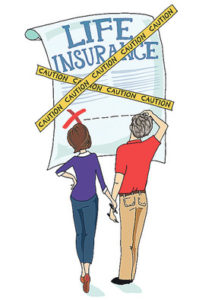 Many consumers are pretty much focused on their current life challenges. Thinking ahead about retirement, emergencies etc are just not on their radar. Until, of course, something happens to make them realize that retirement is near or there is some kind of emergency. The most important step you can take is to develop a savings plan or strategy. That gets you to where you should be from a financial perspective by a specified age. If you can do that and implement this strategy you will be better off than most consumers. Once you have this strategy invest your savings accordingly. It is now time to complete your 5 point mid year financial checklist which we out line below.
Many consumers are pretty much focused on their current life challenges. Thinking ahead about retirement, emergencies etc are just not on their radar. Until, of course, something happens to make them realize that retirement is near or there is some kind of emergency. The most important step you can take is to develop a savings plan or strategy. That gets you to where you should be from a financial perspective by a specified age. If you can do that and implement this strategy you will be better off than most consumers. Once you have this strategy invest your savings accordingly. It is now time to complete your 5 point mid year financial checklist which we out line below.
Your 5 Point Mid Year Financial Checklist
Check your Budget – If you do not have a budget, develop one and review it. Make adjustments as needed to balance your budget. If you need to cut back to avoid building further debt, then do it.
Review your Retirement Contributions – What is the status of your contributions, are you meeting them and are the investments performing?
Review your Retirement Targets – consider how much you have saved, the number of years left to work and your retirement targets. Does something need to be adjusted? Review these changes with your family to make sure they are on board.
Adjust your Investment Strategy – review the returns, the level of diversity and your long-term goals. If you are over weighted in one area should you make adjustments? Take into account the cost of balancing your stocks and fees that you may need to incur.
Review your Investments – Diversity, long-term growth, investment income etc need to be reviewed and how each of your investments meets these goals.




